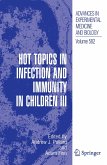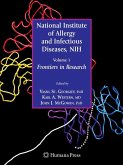Antiviral drugs are important tools for treatment or prevention of viral infections. These drugs were first used for monotherapy, but nowadays combinations of antiviral agents are often part of a standard treatment as evidenced by e.g. HAART (highly active antiretroviral therapy). However, in almost every case of antiviral therapy, drug resistant viruses appear. In addition, the low oral bioavailability, toxicity and the number of severe side effects still pose significant problems. All of the latter issues limit the clinical usefulness and drive the need for improved antiviral strategies. These strategies include new drugs and targets, novel modes of action, vector-based treatments and even the block of defined genes by inhibiting mRNA formation (siRNA).
Highlights of this book include the discussion of:
- novel, promising compounds
- concepts of therapy for new/emerging viruses
- managing drug resistance
- new therapeutic strategies
This book presents an overview of the most recent developments. Contributions were carefully selected to ensure quality coverage by acknowledged experts over a wide spectrum and should prove to be of great value to students and serve as a compendium for R and D and educational professionals.
Hinweis: Dieser Artikel kann nur an eine deutsche Lieferadresse ausgeliefert werden.
Highlights of this book include the discussion of:
- novel, promising compounds
- concepts of therapy for new/emerging viruses
- managing drug resistance
- new therapeutic strategies
This book presents an overview of the most recent developments. Contributions were carefully selected to ensure quality coverage by acknowledged experts over a wide spectrum and should prove to be of great value to students and serve as a compendium for R and D and educational professionals.
Hinweis: Dieser Artikel kann nur an eine deutsche Lieferadresse ausgeliefert werden.








